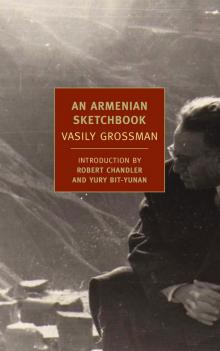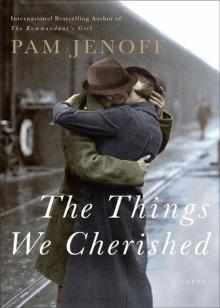An Armenian Sketchbook


Author: Vasily Grossman
Category: Historical
Published: a long time ago
Series:
View: 238
Read OnlineAn NYRB Classics Original
Few writers had to confront as many of the last century’s mass tragedies as Vasily Grossman, who wrote with terrifying clarity about the Shoah, the Battle of Stalingrad, and the Terror Famine in the Ukraine. An Armenian Sketchbook, however, shows us a very different Grossman, notable for his tenderness, warmth, and sense of fun.
After the Soviet government confiscated—or, as Grossman always put it, “arrested”—Life and Fate, he took on the task of revising a literal Russian translation of a long Armenian novel. The novel was of little interest to him, but he needed money and was evidently glad of an excuse to travel to Armenia. An Armenian Sketchbook is his account of the two months he spent there.
This is by far the most personal and intimate of Grossman’s works, endowed with an air of absolute spontaneity, as though he is simply chatting to the reader about his impressions of Armenia—its mountains, its ancient churches, its people—while also examining his own thoughts and moods. A wonderfully human account of travel to a faraway place, An Armenian Sketchbook also has the vivid appeal of a self-portrait.
Few writers had to confront as many of the last century’s mass tragedies as Vasily Grossman, who wrote with terrifying clarity about the Shoah, the Battle of Stalingrad, and the Terror Famine in the Ukraine. An Armenian Sketchbook, however, shows us a very different Grossman, notable for his tenderness, warmth, and sense of fun.
After the Soviet government confiscated—or, as Grossman always put it, “arrested”—Life and Fate, he took on the task of revising a literal Russian translation of a long Armenian novel. The novel was of little interest to him, but he needed money and was evidently glad of an excuse to travel to Armenia. An Armenian Sketchbook is his account of the two months he spent there.
This is by far the most personal and intimate of Grossman’s works, endowed with an air of absolute spontaneity, as though he is simply chatting to the reader about his impressions of Armenia—its mountains, its ancient churches, its people—while also examining his own thoughts and moods. A wonderfully human account of travel to a faraway place, An Armenian Sketchbook also has the vivid appeal of a self-portrait.
 The Secret Touch of Mary Kincaid
The Secret Touch of Mary Kincaid The Sword of Wayland
The Sword of Wayland Sharpe 3-Book Collection 5: Sharpe's Company, Sharpe's Sword, Sharpe's Enemy
Sharpe 3-Book Collection 5: Sharpe's Company, Sharpe's Sword, Sharpe's Enemy Captive of My Desires
Captive of My Desires Sanctuary of Roses
Sanctuary of Roses The Things We Cherished
The Things We Cherished The Girl You Left Behind
The Girl You Left Behind Death Comes to the Rectory
Death Comes to the Rectory